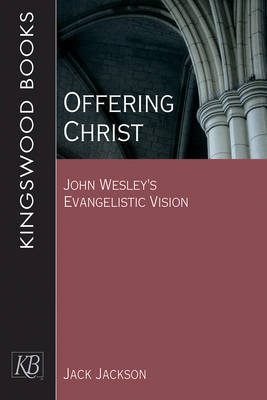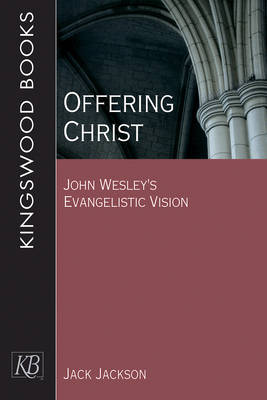
- Afhalen na 1 uur in een winkel met voorraad
- Gratis thuislevering in België vanaf € 30
- Ruim aanbod met 7 miljoen producten
- Afhalen na 1 uur in een winkel met voorraad
- Gratis thuislevering in België vanaf € 30
- Ruim aanbod met 7 miljoen producten
Omschrijving
After decades of conversation serving up a mosaic of understandings of Wesleyan evangelism (focusing on proclamation, initiation, and embodiment), Jack Jackson offers a clearer portrait of Wesley's evangelistic vision, understood through the lens of "offering grace."
Any discussion of Wesley's vision of evangelism must center on the proclamation of the story of God in Christ. But for John Wesley evangelism was much more than preaching for conversion. This book offers a fresh conception of Wesley's evangelistic vision by analyzing his method of gospel proclamation. Wesley was not constrained by the truncated vision of evangelism that has been dominant since the late nineteenth century, one that all too often centers on group preaching with a sole emphasis on conversion. Rather, he stressed a number of practices that focus on a verbal proclamation of the gospel.
These practices occur in a variety of settings, only one of which is public preaching, and result in a number of responses, only one of which is conversion. Of crucial importance for current theological students, clergy, and church leaders around the world, the book demonstrates that visitation, for the purpose of spiritual direction and evangelism, was in many ways the critical leadership and pastoral practice of early British Methodism. This book offers important insights into early Methodism that inform both contemporary practices of evangelism and Christian leadership for both clergy and laity.
Specificaties
Betrokkenen
- Auteur(s):
- Uitgeverij:
Inhoud
- Aantal bladzijden:
- 220
- Taal:
- Engels
Eigenschappen
- Productcode (EAN):
- 9781501814228
- Verschijningsdatum:
- 6/06/2017
- Uitvoering:
- Paperback
- Formaat:
- Trade paperback (VS)
- Afmetingen:
- 152 mm x 229 mm
- Gewicht:
- 272 g

Alleen bij Standaard Boekhandel
Beoordelingen
We publiceren alleen reviews die voldoen aan de voorwaarden voor reviews. Bekijk onze voorwaarden voor reviews.











